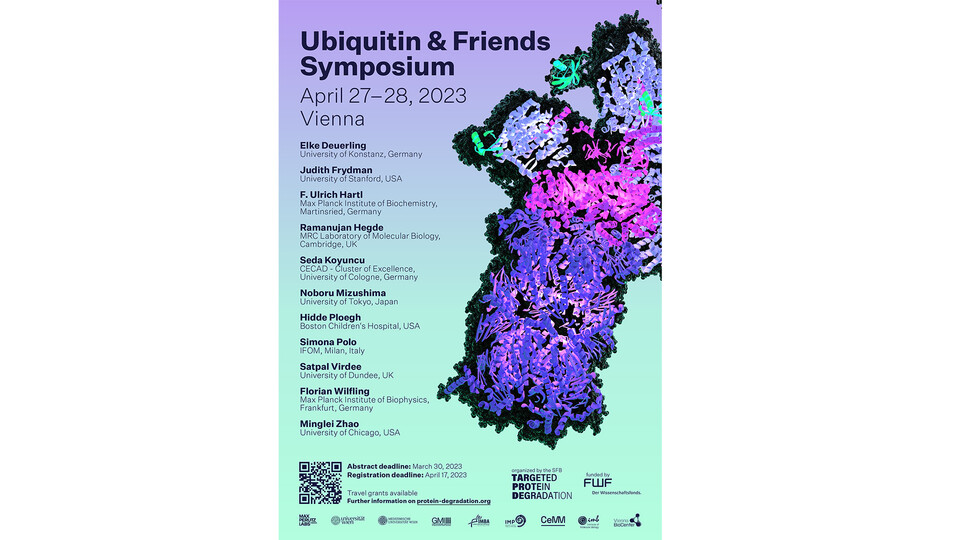
We will be covering various topics ranging from structural insights of the molecular machines involved in proteostasis to chemical approaches for studying the ubiquitin system as well as various biological pathways such as autophagy, protein quality control and proteostasis during stress, aging and diseases.
Program
The 1.5-day program will comprise talks from 11 renowned scientists invited as guest speakers, 10-11 talks by participants selected from the submitted abstracts, and flash talks followed by poster sessions. A wine reception and the conference dinner take place on the first evening.
It will start on Thursday at 9:00 am, and end on Friday by 3:00 pm (presumably).
Confirmed Speakers:
F. Ulrich Hartl, Max Planck Institute of Biochemistry, Martinsried, Germany
Judith Frydman, University of Stanford, USA
Simona Polo, IFOM, Milan, Italy
Florian Wilfling, Max Planck Institute of Biophysics, Frankfurt, Germany
Minglei Zhao, University of Chicago, USA
Elke Deuerling, University of Konstanz, Germany
Ramanujan Hegde, MRC Laboratory of Molecular Biology, Cambridge, UK
Seda Koyuncu, CECAD - Cluster of Excellence, University of Cologne, Germany
Noboru Mizushima, University of Tokyo, Japan
Hidde Ploegh, Boston Children's Hospital, Harvard Medical School, USA
Satpal Virdee, University of Dundee, UK
Registration is open: read more & register here!
Abstract deadline to be considered for a talk: March 30, 2023.
Registration deadline & abstract deadline for posters: April 17, 2023.
All attendees are strongly encouraged to submit an abstract. Travel grants and awards for best posters & best short talk available!